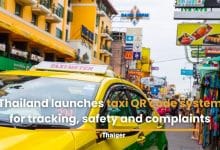Young travellers spend locally, raise tourism awareness

While Thailand has based their tourism strategy solely on attracting wealthy, mostly older tourists, an official with Tourism Australia has cautioned the world not to underestimate the value of young travellers. At the 2022 World Travel Market in London, the regional general manager for the UK and Northern Europe of Tourism Australia spoke about the importance of young backpackers.
She pointed out that young people take longer holidays from work, are more adventurous travellers, and are often the most likely to travel. As the Covid-19 pandemic subsided, it was young backpackers that were the first to come back to travelling around the world, including a quickly revitalizing backpacker scene in Thailand. And young travellers have their whole lives ahead of them to take more and more trips as they grow and earn money in the future, according to the Tourism Australia rep.
“It gives people their first taste of travel, it’s an investment.”
In Australia, is common for young travellers to get a work visa and stay in Australia, filling jobs in earning money. Before Covid-19, 250,000 young tourists work in Australia but only 40,000 remained when the borders close according to Asia News Today.
Research showed that the work visa scheme brought in more money than rich travellers, with young foreign workers spending on average about AU$10,000. Officials took notice and loosened and expanded their working visa scheme to accommodate digital nomads, and older travellers taking a career break.
Not only are young travellers the most versatile, but they often are the demographic that spreads money the most on a local level. The chair of the British Educational Travel Association pointed out that students and young people tend to stay in hubs and urban areas and spend their money locally. They eat at local markets and small restaurants and patronize local shops, services, and bars.
One facet of attracting tourists that Thailand’s authorities seem to often overlook is that some demographics may take expensive vacations, but they book them with travel agencies in their home countries that utilize buses, resorts, and services, owned by foreign nationals exclusively. People eat at their foreign-owned resort and shop at the foreign-owned gift shop. Many of the tourist types Thailand is now fervently chasing are not spending any money on locally-owned businesses and services.
But backpackers do. They may not be rich, but a large percentage of the money they saved to travel goes directly into local economies. And they may be low spenders now, but they are spreading the word to others through word-of-mouth, social media, and recommendations to friends and family who may have deeper pockets. Parents come to visit, friends and followers see their Instagram stories, and general awareness of tourism in a country is raised.
Thailand has a recent history of looking down on backpackers and young travellers with disdain. But it may serve their long-term tourism goals to be more welcoming to the young travellers who have been pumping money into local Thai economies sooner than the wealthy tourists who are only trickling back in now.
Latest Thailand News
Follow The Thaiger on Google News:


























